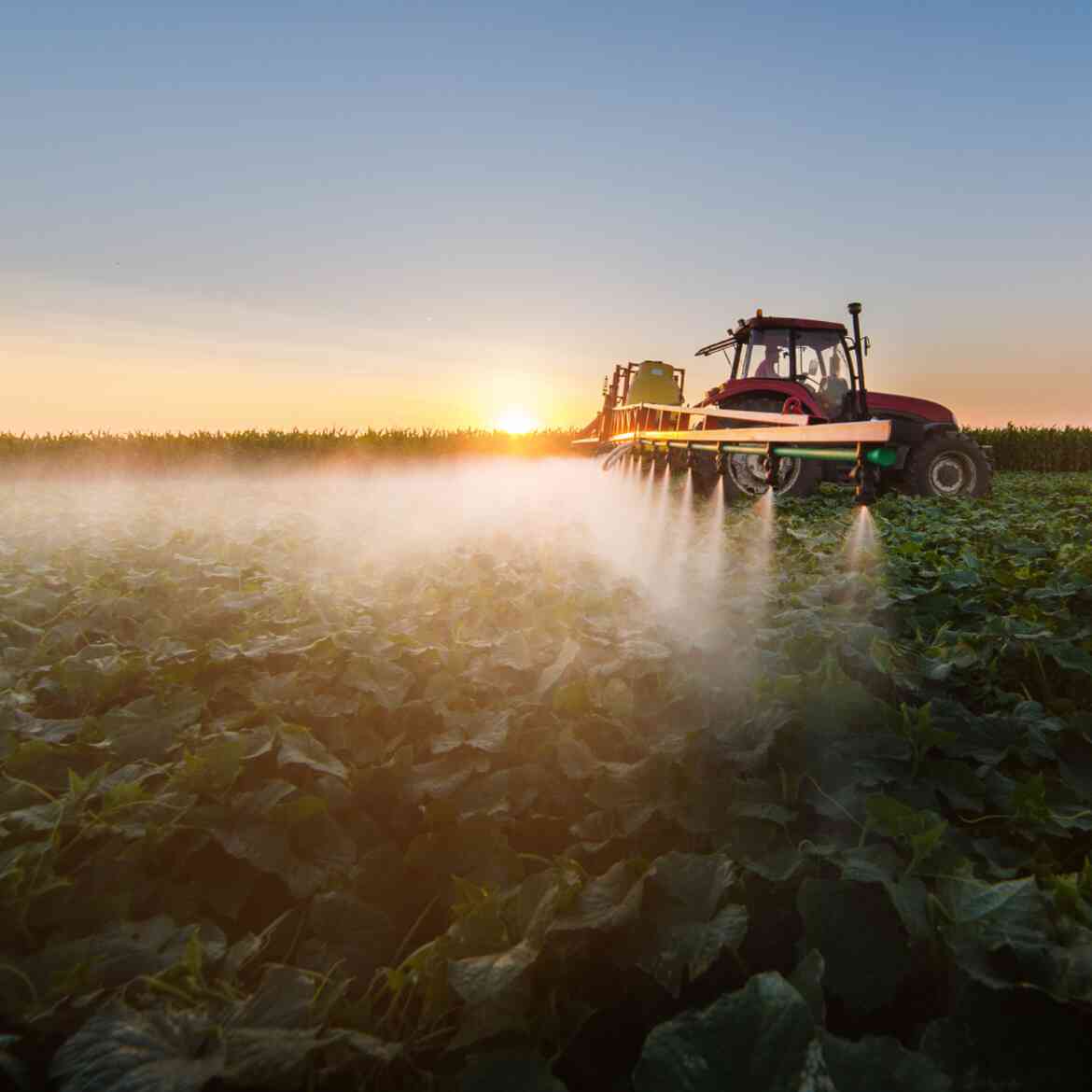Agricultural pesticides
 What are agricultural pesticides?
What are agricultural pesticides?
Agricultural pesticides make up the majority of pesticides in Canada and protect crops from the devastating losses associated with insect, weed and disease pressure.
Both organic and conventional farmers use pesticides to battle pests and ensure they get the best quality and highest yields possible.
Canadian farmers use what is called Integrated Pest Management (IPM), which is a system of managing pests that involves using the best combination of cultural, biological and chemical measures for particular circumstances, and supports safe and sustainable food production.
In agriculture, pesticides help farmers sustainably grow safe, healthy and nutritious food for consumers. When used in conjunction with precision agriculture advancements like GPS guidance, drones, sensors, soil sampling, farmers are able to apply pesticides more precisely, targeting only areas that require them.
There are three main types of agricultural pesticides:
Herbicides help control weeds that would otherwise out-compete crops for vital nutrients, space, water and sunlight, allowing farmers to harvest more productive crops, more efficiently.
Fungicides protect plants from disease-causing organisms that spread quickly to destroy entire crops and negatively impact food availability and affordability.
Insecticides are used to prevent insects from damaging crops through both feeding and the spread of disease.

Did you know?
Without pesticides to control late blight, the disease responsible for the Irish potato famine that killed almost a million people, today’s farmers would lose approximately 60 per cent of their potato crops. Canada now boasts a billion-dollar potato industry and pesticides play an important role in protecting the crop against a disease like blight.
Benefits of agricultural pesticides
Safeguard crops against disease
Globally, there are more than 30,000 species of weeds, 3,000 species of fungi and 10,000 species of plant-eating insects that can introduce disease into our cropping systems. Farmers rely on plant science innovations to protect their crops from these pests.
Provide a stable supply of safe and affordable foods
Pests can destroy entire crops, which can increase production costs and make food more expensive. Pesticides and plant breeding innovations help increase crop health, making food safer and more affordable.
Increase food production while reducing food loss and waste
Without pesticides, productivity for some Canadian fruit and vegetable crops would be cut in half. We would have 59 percent less grapes, 46 percent less apples, 50 percent less cherries, 51 percent less lettuce, 53 percent less peppers and 61 percent less cucumbers (source).
Protect the environment
Pesticides help Canadian farmers grow more food on less land, using less resources, leaving more land untouched by agriculture. Currently, 34 million acres remain untouched by agriculture due to increased production on existing farmland.
Enable no-till and conservation tillage
Pesticides help farmers adopt no-till and conservation tillage practices, which help sequester carbon in the soil, improve organic matter, and reduce fuel use and greenhouse gas emissions. The carbon sequestration and fuel savings from no-till and conservation tillage practices saved an estimated 20 billion kgs of greenhouse gas emissions (source) from being released into the atmosphere between 1996 and 2018, which is equivalent to removing about 13 million cars from the road for a year.
What’s the story with glyphosate?
Despite being plagued by misinformation, glyphosate is widely considered the most thoroughly studied pesticides in the world. It has one of the best safety profiles and has revolutionized weed control.
Every major regulatory agency around the world, including Health Canada, has concluded that glyphosate does not cause cancer. In 2017 Health Canada did a full re-evaluation of glyphosate where it declared ‘products containing glyphosate do not present risks of concern to human health or the environment’.
In 2020 the United States Environmental Protection Agency (EPA) said it continues to find no risk of concern to human health when used according to label directions and is unlikely to be a human carcinogen. (Source)